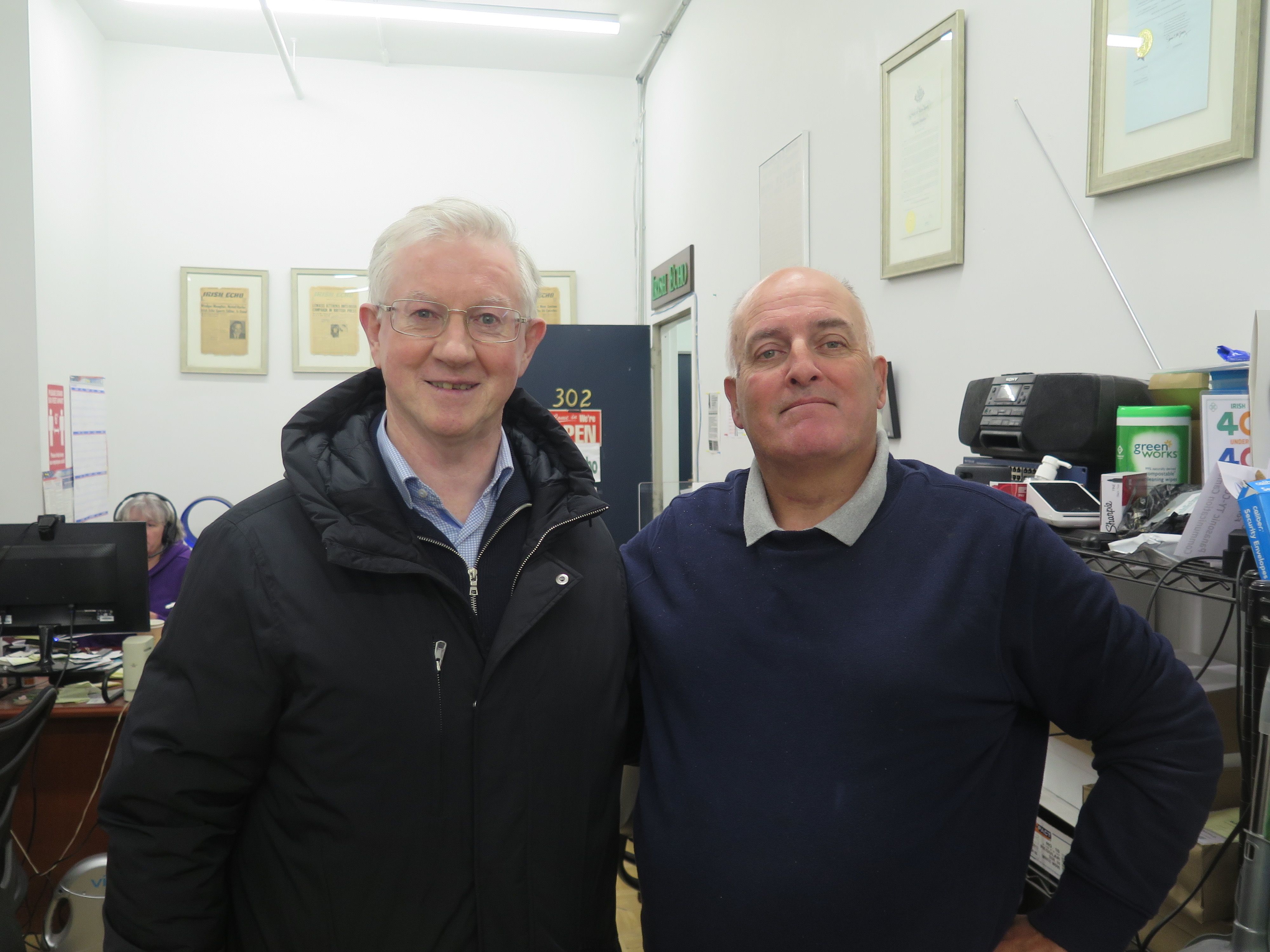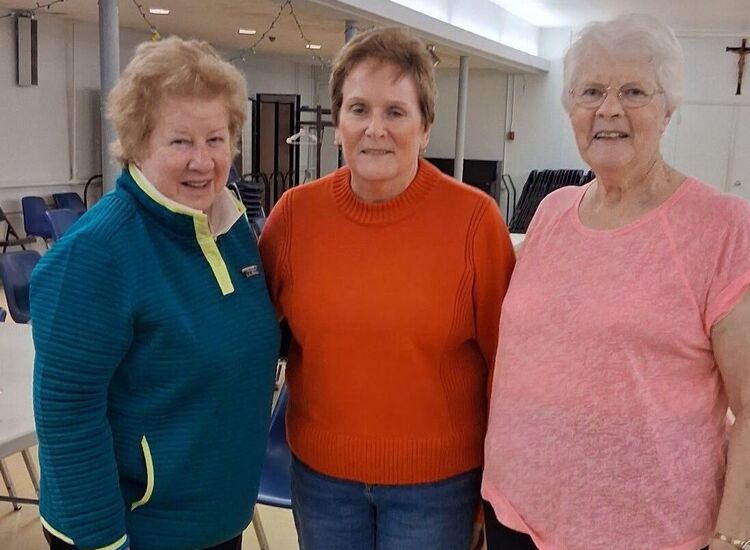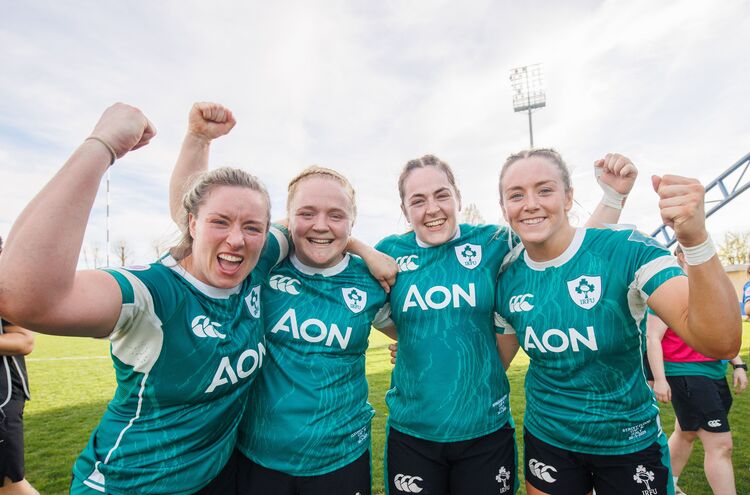Their father would look in on them after his workday ended. He’d ask the three children if they had said their night prayers. On one occasion, the eldest said he hadn’t as he’d had a pain in his tooth. He was 5.
“Michael, that’s okay,” his father said. “God understands.”
Sixty years on, at the beginning of the 2016-2017 academic year, Dr. Michael O’Sullivan S.J. asked his MA in Applied Spirituality students at the Waterford Institute of Technology to write their spiritual autobiography.
His own spiritual autobiography includes that incident from his Limerick City childhood as a “foundational” moment.
“This is going back into the 1950s. My father could have said: ‘Well that’s hardly enough reason not to say your prayers.’” said O’Sullivan, with a laugh. “But I immediately had an experience that God is a kind God, a caring God, a compassionate God, an understanding God. I had that very much inside. That has influenced my whole development.”
As a recently ordained Jesuit priest he worked with three parishes in the city of Arica, in northern Chile, from 1982. In 1984, he was asked to leave by his religious superiors due to pressure from the military regime led by General Pinochet, and because his life and the well-being of those close to him were in danger.
“A big reason I went was because I wanted to bring the kind of God that I had experienced into a situation of great cruelty and oppression,” recalled O’Sullivan, who joined the Society of Jesus when he finished high school in 1969. “And this was a person, Pinochet, who was a Christian, a Catholic, in name anyway. What kind of a God was he communicating to the people of his country by the way he was treating them?”
O’Sullivan, who also ministered in El Salvador and Nicaragua, has spent much of his working career teaching at university level. For the past decade and a half he has been program director for an MA in applied spirituality, often in collaboration with his colleague Sr. Bernadette Flanagan.
Previously, it was offered by the Milltown Institute of Theology and Philosophy at Milltown Park in Ranelagh, Dublin. When that institution ceased enrolling students, the program moved across the city to All Hallows College in Drumcondra. Then last year, All Hallows’ property was sold. Now, the Jesuit Center at Milltown Park, where the future Pope Francis studied in 1980, is again the location for classes, while WIT is the accrediting college, a spirituality first for any institute of technology in Ireland. One obvious advantage of the arrangement is Milltown’s “world-class library,” said O’Sullivan.
The program director’s experience of teaching it, and the anecdotal evidence gleaned from other colleges, has suggested to him that lay students in Ireland have an interest in spirituality but very little in theology.
Disillusionment
“Theology is perceived as prescriptive,” O’Sullivan said. “People are less open to it.
“They feel, rightly or wrongly, that theology is a bit more doctrinally led, a bit more clerically dominated,” he added. “They see in spirituality a more open-ended form of study, which is at the same time about the meaning of life and what it is to be a spiritual person.”
And it’s perhaps not hard to see why people want a different approach. “The abuse scandals and the way they were handled,” O’Sullivan said, “engendered a lot of disillusionment and anger among Catholics and Christians.”
While disenchantment with the church and its leaders may be the immediate backdrop, spirituality as an academic discipline began to take off during the post-Vatican II era, a time of great optimism in the Catholic Church.
O’Sullivan identified in particular Sandra M. Schneiders as a pioneer in the field. The Institute of the Heart of Mary sister and Scripture scholar would become a colleague and friend over the years. “I celebrated her 80th birthday with her in San Antonio last November,” he said. Schneiders went to the Graduate Theological Union in Berkeley with new ideas in religious studies and history after completing her doctorate at the Gregorian in Rome in 1976.
“There was a need for something new to meet the way people were thinking and feeling,” he said.
“Karl Rahner [the Jesuit theologian who died in 1984] said the Christian of the future would be a mystic or nothing at all. By which he meant, I believe, the way societies in the world were going, that unless people could find a personal and interior experience of let’s call it God, they wouldn’t maybe find it credibly anywhere else,” O’Sullivan said. “Growing up, being socialized into religion won’t do it with life as it has to be lived in the world now.”
Today, spirituality is a burgeoning field, with already four academic journals devoted to it. O’Sullivan is a member of the editorial board of one of them, Spiritus, the journal of the Kansas-founded Society of the Study of Christian Spirituality, which holds a world conference. It brings him into contact, he said, with professors from some of the leading universities in the Western world. O’Sullivan is also a member of the executive board of the British Association for the Study of Spirituality, and is involved also at leadership and research levels with similar endeavors in Switzerland and South Africa.
Because many in the Millennial generation say they are spiritual as opposed to religious in a formal sense, some fellow priests have asked O’Sullivan’s advice about how to talk with young people. However, his students are in other age categories.
U.S. academic Sr. Sandra M. Schneiders is regarded
as a pioneer in the study of Christian spirituality.
PHOTO: GRADUATE THEOLOGICAL UNION
“Those doing an MA are generally older and have lived life and been through various things, issues connected with bereavement, illness, relationships and work or they’re just asking what does life mean for them now,” he said.
“People come from the counseling world, from the educational world, nursing and medical world,” O’Sullivan said. “They find the training they received didn’t equip them adequately for questions that arise with their clients or patients, or stuff that arises with themselves as a result of what clients or patients are bringing up.
“They feel the need to go back to enhance what they have for their professional work,” he added. “Or they didn’t get a chance earlier in life. Or they’ve taken early retirement and they want to look at some issues.”
Authenticity
O’Sullivan asks applicants: “How open are you as a person facing life’s issues and concerns and looking honestly at them and trying to journey honestly around them? How do you rate your capacity for change?
“I put a lot of emphasis on authenticity – that this program is really about the journey to be an authentic human being in relation to the world of your time.
“We’re really on about beauty, truth, goodness and love. That’s the horizon of meaning and value we try to do the program within,” the Jesuit said. “These are the realities that life is all about and we want our own life aligned with those realities. How do you live life along those lines in the context in your own time and place?”
This year’s class has 21 students, of whom 14 are women. One of two priests studying the MA has taken as his dissertation research topic the evolution of ideas of spirituality within his missionary order. One international student is researching “Spirituality and Cinema,” while a Dubliner is looking at the spirituality of people working in a food bank in her native city.
Each student has a spiritual director whom he or she meets 10 times in the year. (There are 14 spiritual directors, who are likewise a mix of men and women).
“Some people do the journey and are drawn more deeply into the Christian tradition as a way of helping them resource that journey. Others perhaps are less drawn that way,” he said.
“Some people who were disillusioned are opened up to a new way of feeling about things and resources they never knew about. They actually come out of some of their disillusionment and anger.
“Some go more deeply into the Christian tradition from a position of already being well-disposed towards it,” he said.
Whether they believe in God or a higher power or are just mostly focused on being a very good person, O’Sullivan has said that the quality of life of the students goes up.
“There isn’t a single day that I don’t use the skills I learned and practiced in the MA program,” a former student wrote to him from America last October. “I am very fortunate to be employed in a job that gives me that gift every day.
“And I am even more fortunate to have been a part of a program that has shaped my life and faith so intimately. Thank you for being a special part of that, Michael, and know that what you do changes people’s lives,” she continued. “For mine has certainly been changed and every life I encounter in my present work is transformed because of it too.”
“People come in and find stuff they never really dealt with, never journeyed with or worked through,” O’Sullivan said, “and when they do, of course it’s challenging at times on the way, but at the end they say it was well worth it.
“But a lot of people out there are not doing that. They’re getting on with life and hoping for the best. They’re doing the best they can,” O’Sullivan said. “But there could be a lot more support and encouragement and assistance and guidance.”
For more information about the MA program and the Spirituality Institute for Research and Education (SpIRE), of which Dr. Michael O’Sullivan is director, go to spiritualityinstitute.ie. O’Sullivan suggests as introductions to the subject Ron Rolheiser’s “Seeking Spirituality,” as well as two works by Philip Sheldrake, “A Brief History of Spirituality” (2nd edition, 2013) and “Spirituality: A Guide for the Perplexed.”









